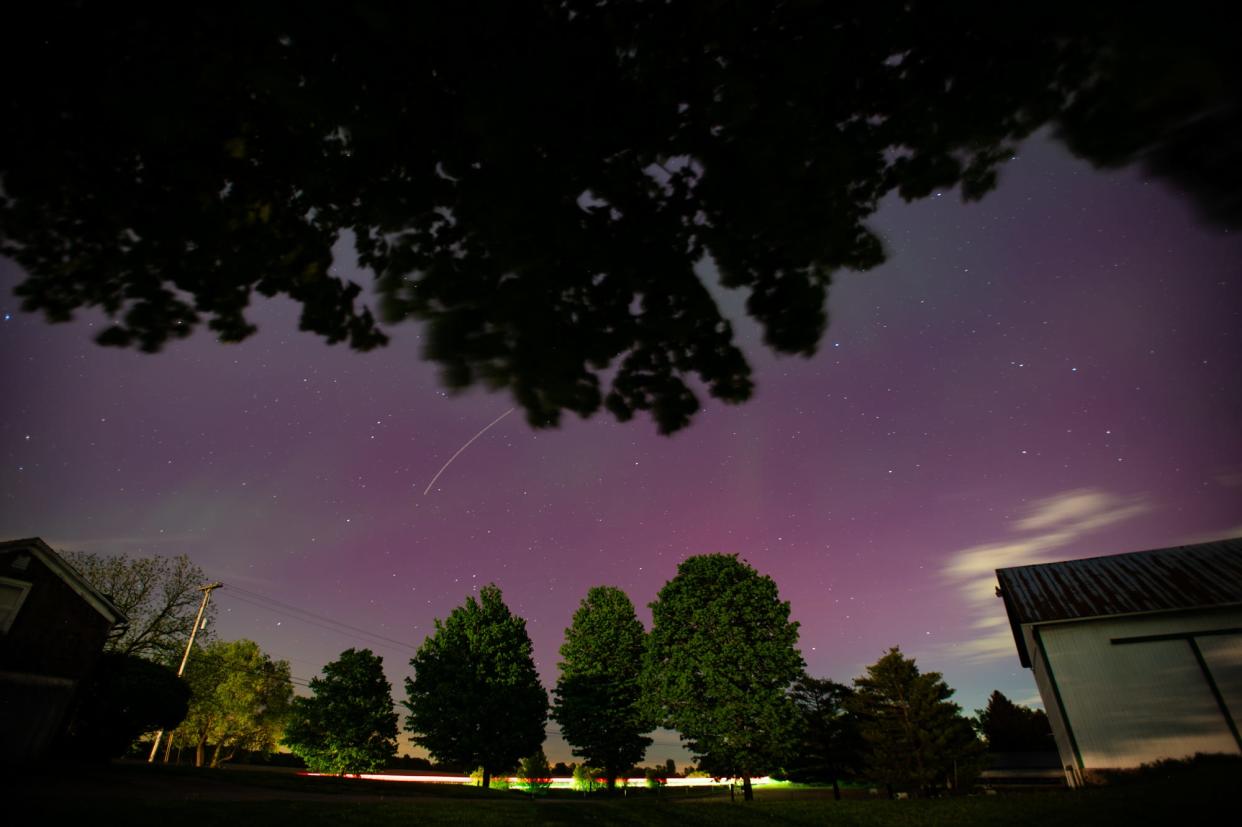Will the northern lights shine tonight? Here's what the experts say

LANSING — There's a faint chance of seeing northern lights in Michigan tonight, according to those who watch the skies for a living.
There are a few ingredients necessary for a great northern lights experience: The interstellar conditions have to be just right to produce the stunning colors and, even if that's happening, the aurora borealis will only be visible when it's dark and there's no cloud cover.
Let's start with the general forecast this week: It should be clear enough in most of Michigan overnight, the early Wednesday cloud cover was expected to dissipate and it should be clear for most of the state overnight, said Cort Scholten, a meteorologist with the National Weather Service in Grand Rapids.
The less predictable part of the equation is whether the sun will send enough particles to collide with the Earth's magnetic field to light up the sky. The Upper Peninsula could be within the viewing line for the aurora borealis, according to a National Oceanic and Atmospheric Administration forecast for July 24. The rest of the state may not experience the same conditions.
Lights won't be as bright as in May
According to NOAA's Space Weather Prediction Center, a minor geomagnetic storm, such as the one forecast for tonight, typically makes the aurora visible at high latitudes, like northern Michigan and Maine.
The upcoming light display is expected to be a "quiet" one, the lowest visibility of four categories for the display.
By comparison, the May 10 geomagnetic storm that made the aurora visible across a wide stretch of the U.S. was rated a G5, the most extreme, and displayed the northern lights to all 50 states, USA TODAY reported.
What is the aurora borealis? How do the northern lights work?
Auroras are ribbons of light weaving across Earth's northern or southern polar regions, according to NASA. Magnetic storms that have been triggered by solar activity, such as solar flares or coronal mass ejections, cause them. The solar wind carries energetic charged particles from such events away from the sun.
Tonight's expected aurora is attributed to a July 21 coronal mass ejection on the sun's surface, which sent particles into space.
Some of those energized particles will hit the Earth's atmosphere at 45 million mph and will be redirected to the poles by the earth's magnetic field, according to Space.com, creating the light show.
During major geomagnetic storms, the auroras expand away from the poles and can be seen over southern parts of the United States, according to the NOAA.
NOAA offers aurora dashboard
If you're curious about the latest forecast for the aurora, the NOAA has a tool for that. The Aurora Dashboard offers a visual, animated prediction of where the aurora might be seen in the next few minutes, as well as the following day.
Contact Mike Ellis at mellis@lsj.com or 517-267-0415
This article originally appeared on Lansing State Journal: Northern lights in Michigan depend on weather, solar storms

